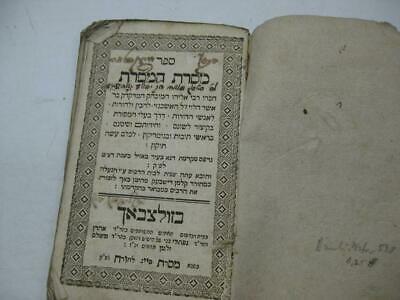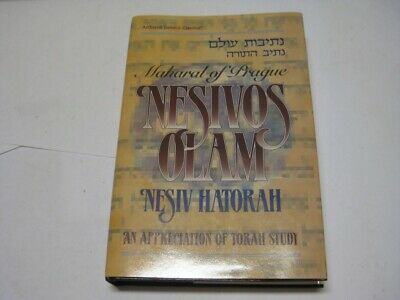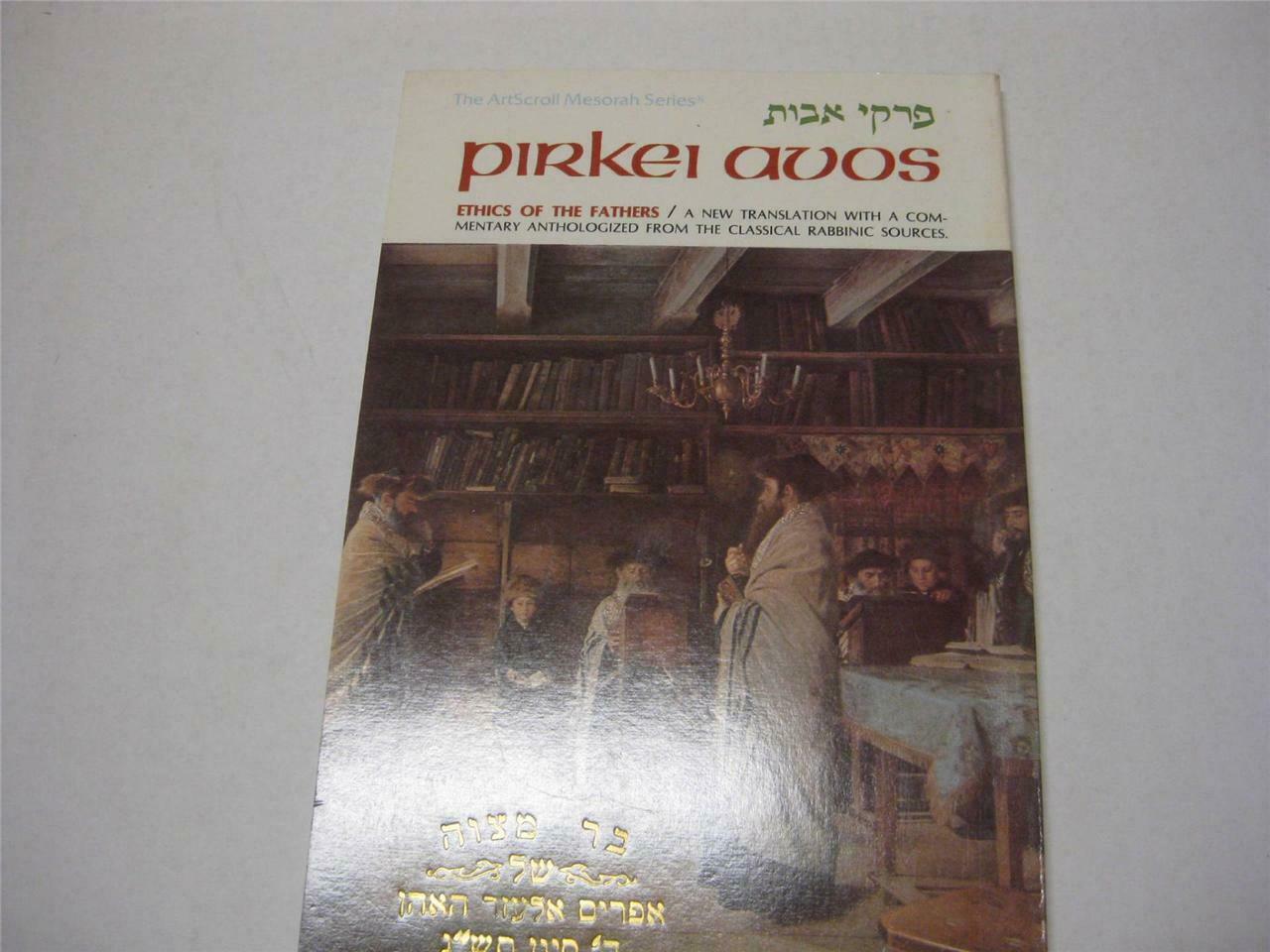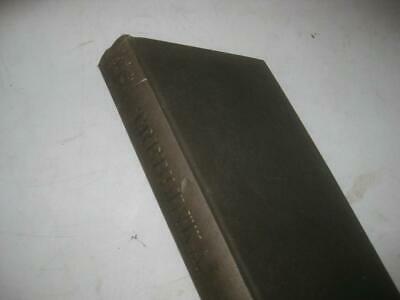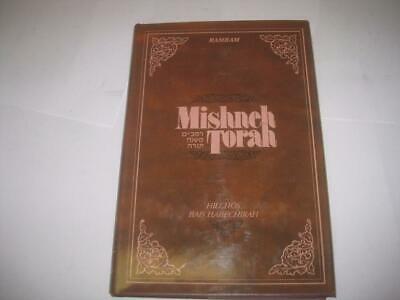-40%
1771 Sultzbach Masoret Hamasoret by Eliyahu Bachur Antique/Judaica/Jewish/Book
$ 63.35
- Description
- Size Guide
Description
ENV141771 SULTZBACH, GERMANY PRINTING
HEBREW
VG CONDITION, COMPLETE, IN WRAPS
Masoret Hamasoret is an Explaination of the technical terms and the signs of the masorah by R. Elijah Levita (Bahur; ben Asher ha-Levi Ashkenazi; 1468 or 1469–1549), Hebrew philologist, grammarian, and lexicographer. Born in Neustadt, near Nuremberg, Germany, he spent most of his life in Italy (Padua, Venice, and Rome) where he taught Hebrew language and grammar. His pupils included Christian humanists, from whom he learned Greek and Latin. Among his pupils he counted Sebastian Muenster, who translated Elijah's works into Latin, and Cardinal Egidius da Viterbo in whose home in Rome Elijah stayed for 13 years (1514–27). Before entering the house of Egidius da Viterbo, Elijah also wrote secular literary works in Yiddish. Georges de Selve, another of his pupils, who later became the French ambassador to Venice invited him, in the name of King Francis I, to lecture in Hebrew at the CollIge royal in Paris. He declined the offer for two reasons: he neither wanted to be the only Jew allowed to live in France, nor did he feel that under such conditions he could observe the religious precepts. In 1527, when Rome was sacked by the armies of Charles V, Elijah lost all his property (including some manuscripts). He returned to Venice, where he earned his livelihood as a proofreader in the publishing house of Daniel Bomberg (1529 to the late 1530s), and remained here, except for an absence of four years (1539/40–44). During that period, he supervised Fagius's press at Isny (in Wuerttemberg), and later accompanied him to Constance (1542–43). At Isny, Levita printed some of his most important works. The rabbis looked with disfavor on Elijah's teaching gentiles the Torah. Elijah rejoined with the claim that earlier Christian Hebraists had upheld Christian and Jewish Hebrew scholarship resulting in a tendency, on their part, to defend Jews and the Jewish community also from physical violence. Two of Elijah's grandchildren, however, converted to Christianity and helped those who calumniated the Talmud. One of them, baptized as Vittorio Eliano, became an ecclesiastical censor of Hebrew books and had some part in the Cremona (Christian) edition of the Zohar (1558–59). Elijah, despite false allegations brought against him to the contrary, remained an observant Jew.
Elijah wrote many Hebrew grammar works, Hebrew and Aramaic dictionaries, and did masoretic research. In Hebrew grammar, he followed the line of thought of the Kimhis: he published Moses Kimhi's Mahalakh, with his own commentary (Pesaro, 1508; in this edition the name of the author is mistakenly given as Benjamin of Rome); and wrote notes and critiques, "Nimmukim" (unpublished), on David Kimhi's Mikhlol and on his Sefer ha-Shorashim. His own works, written and published in Rome between 1518–19, and translated into Latin by Sebastian Muenster, are: Sefer ha-Harkavah (1518); Ha-Bahur (1518; the title is after his own name "R. Elijah Bahur"); and Lu'ah be-Dikduk ha-Pe'alim ve-ha-Binyanim (unpublished). Ha-Harkavah deals with "the grammar of every foreign and compound word" in the Bible, listed in alphabetical order, and the grammar of the noun and the verb. In Ha-Bahur, which in a later edition became known as Dikduk Eliyyah ha-Levi (Isny, 1542), there is an allusion to the name of the author: "Since for every young man it [the book] is good and 'chosen.' And I, my name is Bahur [= "chosen"], therefore Bahur have I called it." In Rome in 1520, he published Pirkei Eliyahu, a work, written partly in verse, on the grammar of the Hebrew letters and vowels; it is a follow-up of Ha-Bahur and completes the study in the latter. In its second edition (Venice, 1546), he added some chapters on the pattern of the nouns and the formative letters. Elijah did not introduce many innovations in his grammatical system; its easy and clear presentation, however, was instrumental in spreading the knowledge of the Hebrew language and grammar among Jews and Christian humanists. His grammatical rule on the five classes of sheva-na is still accepted today. His Masoret ha-Masoret (Venice, 1538), in which he explains the technical terms and the signs of the masorah, is an important contribution to masoretic study. The preface, written in prose (which follows the foreword in verse and the rhymed introduction), is an historical and original research in Hebrew vocalization and accentuation, and in the masorah. Elijah was the first to point out that the vowels and accents did not originate in the Sinai period but in post-talmudic times. In his work Tuv Ta'am (Venice, 1538), Elijah attempted to explain the rules on the accents in the Bible: their grammatical value and their relationship to each other. His dictionary, compiled from the Aramaic translations of the Bible, Meturgeman ("The Interpreter," with a Latin foreword by Paulus Fagius), and his lexicon of the Hebrew words in the Talmud and the Hebrew of the Middle Ages Tishbi, with a Latin translation by Fagius (Isny, 1541), are of major importance in the research of Hebrew grammar. Tishbi is a source on the pronunciation and the vocalization of Hebrew by the German and Italian Jewish communities. Levita's Meturgeman and Tishbi were extensively used by Christian Hebraists such as Guy Le FIvre de la Boderie, a pupil of Postel, who makes glowing reference to Levita in the preface to his Dictionarium Syro-Chaldaicum (in the Antwerp Polyglot Bible, 1572). Elijah also composed a concordance to the Bible, Sefer ha-Zikhronot (the complete work was never published; see Frensdorff, in MGWJ, 12 (1863), 96–108).
His research into the Hebrew language laid the foundations for the lexicography and etymology of Yiddish. Elijah refers to Yiddish as the "language of Ashkenaz" (Germany) or "Deutsch"; his reference in fact is only to the German dialect used by Jews. Shemot Devarim (Isny, 1542) is the first known Yiddish-Hebrew dictionary. It lists 985 words with their Hebrew translation, as well as Latin and German by Paulus Fagius. In Tishbi, where Elijah concludes each entry with the translation of the Hebrew radicals into German (he also does this to a certain extent in the Meturgeman), there are etymological explanations of several Yiddish words (such as katavos, meykn, shekhtn); two (mashkeyt, sargenes) are even included in the 712 entries of the dictionary. His Yiddish translation of Psalms (Venice, 1545), the first to be published, is based on earlier translations which closely followed the Hebrew text; it became a popular work, went through several editions, and served as a model to other translators.
We have over 100,000 Jewish Books in Stock, please make sure to check out our
Our eBay Store
Questions, comments, Requests?
OUR STORE NUMBER IS 347-492-6508
Orders can be processed over the phone as well
Our storefront location is at Mizrahi Book Store
3114 Quentin Rd
Brooklyn NY 11234
Visitors are welcome by Appointment
COMBINED SHIPPING DISCOUNTS:
There is off each additional item paid for and shipped together, which makes the shipping just .99 for almost all additional items. Please note that purchases must be paid for at once, not individually to qualify for the discount. If you plan on bidding on additional items, please hold off payment until done purchasing. This discount should be deducted automatically, please contact us if for some reason it does not. Priority mail is available upon request.
STORE HOURS
:
Our storefront is located at 3114 Quentin Rd, Brooklyn, NY, 11234. Visitors are welcome by appointment, our hours are Sunday-Thursday 10 am - 6:30 pm and Friday 10 am - 1 pm. We are closed on Saturday and Jewish Holidays. Orders can be placed over the phone at 347-492-6508
INTERNATIONAL BUYERS
:
For most individual books, we ship first class mail. Price is by weight, and this service is tracked. For multiple purchases, we usually use Priority Mail, a flat rate envelope for ( to Canada) can fit 3 Regular sized books and a flat rate box for ( to Canada) can fit 8-10 books of average size. A large flat rate box for ( to Canada is available as well and can fit up to 18 books, depending on size. Oversized books are more expensive to ship, please ask for shipping quote for multiple books in advance to prevent any misunderstandings. International postage costs are subject to USPS yearly rate increases.
RETURN CUSTOMERS:
Return customers get 7% off every order, from the second shipment and on. This is not deducted automatically, so please request an invoice and we'll send one over asap.
REFUNDS:
We offer full refunds within 14 days of purchase.
QUESTIONS
:
We are here for you and usually respond immediately, feel free to contact us with any questions or concerns you may have.
1ST EDITIONS:
We try to be precise when marking the edition, but if you are looking for first editions only, please ask us to verify the edition before purchasing, to prevent any misunderstandings. First Edition can unfortunately mean too many things.
WANT LIST
: Looking for something and don't see it? Let us know and we'll look out for you. We go through tens of thousands of books a year and we'll be glad to help.
SELL US YOUR BOOKS
:
We purchase Jewish books and any books of Jewish interest, used, rare and antique books and collections. Languages we specialize in are English, Hebrew, Yiddish, German, Spanish, Ladino, Russian and French. We purchase over 60,000 Jewish books a year and will travel to purchase libraries. Please contact us for details
DISCLAIMER
:
We sell via our storefront as well and thus reserve the rights to end an auction early if there are no bids. If interested in placing a bid late in the auction period, you can let us know to ensure it is not sold in the interim.
The descriptions we use for our books offered, may come from a variety of sources, such as standard reference books, auction catalogs, the Publishers' descriptions, online resources and customer reviews.... If you feel any specific description violated third part rights, please contact us and we will have it removed immediately.
Pictures sell!
Auctiva offers Free Image Hosting and Editing.
300+
Listing Templates!
Auctiva gets you noticed!
The complete eBay Selling Solution.
